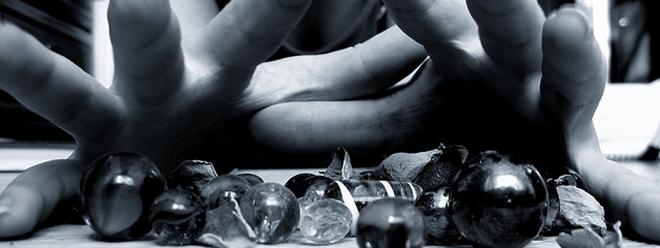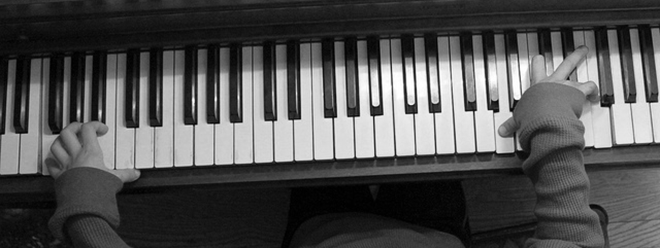
by Tara Joyce | Jun 1, 2015 | Cultural Creativity, Pay What It's Worth Pricing

When I share I practice with Pay What It’s Worth pricing, I often receive one of three perspectives: The Giver loves it and is intrigued by it; the Matcher is curious, has questions, and wants to know more; and the Taker gets angry.
It is the Taker’s perspective, for me, that’s absolutely fascinating and holds a wealth of information… Perhaps more so than the people and perspectives who are open to the idea.
Being taken from hurts. Being a Taker hurts too.
The Taker’s perspective tells so much about the human condition, and how we as individuals process and express our collective feelings of separation and of lack. The Taker is extremely victimized by their feelings of lack, and they’re not yet capable of constructively processing them. The Taker lives within each of us — we experience it in the places in our life where we have, in fear, not yet owned our responsibility. It’s more than we’re capable of handling in the moment.
In the context of money and pricing, the Taker thinks and feels it’s stupid to not set prices. Their perspective is: humans are inherently not fair, nor generous. The Taker challenges the validity of, the sustainability of, and the authenticity of not setting prices, and they challenge my own authenticity as a seller, for choosing it.
The Taker does not believe I could be truly be happy with what they give, nor will I feel it’s fair. This perspective perfectly reflects their own story about relationships, and more specifically about money and finances, and it justifies their own actions in relationship. It’s a self-fulfilling prophecy, really. They ‘know’ they won’t be fair, and so they question how I could possibly be happy with what they give. In not being capable of fairness or balance in their own relationships, they project this lack onto me, and everyone else.
Engaging in emotional jeopardy.
The Taker, rather than look at their own feelings, thoughts, and actions, instead looks elsewhere, at something external; such as at me and my offerings. Rather than observe their own intentions and actions in relationship, they look for the inevitable holes in mine. When allowed, they use this vulnerable space to show their Ego that others take in the same way they do. When given the freedom, the Taker uses this space to justify their behaviour and to feel victimized by the relationship — either by assuming they must take more than is fair in order to survive, and/or by feeling that they haven’t received enough.
The Taker is not yet capable of investing in fair exchanges and balanced relationships. They lack boundaries and a sense of responsibility. And when allowed by others, like me, they will unconsciously use their exchanges and relationships as a mirror to confirm what they already ‘know’.
The Taker’s immense value.
In recognizing the importance of the Taker’s perspective, I’m being emotionally self-protective. In being self-protective, I’m enabling myself to remain emotionally self-aware and self-nurturing without being hurt or taken advantage of by others. In caring for myself in this way, I’m simultaneously supporting the Taker in re-writing their story. For I’m not engaging in the drama of their Taking, perpetuating it and co-creating it. In remaining attentive to the person, and their drive to Take, and interacting with them in realistic ways, I’m not putting myself in emotional jeopardy. I’m co-creating healthy relationships, and I’m supporting the Taker in their healing and recovery.
Creating the balance you need.
The Taker has the powerful ability to show you where your boundaries need to be strengthened and transformed, to ensure you are truly creating relationships of mutual fulfillment. Interacting with your Taker will guide you in creating the balance your relationships need.
photo credit: Heleri

by Tara Joyce | May 22, 2015 | Self/Business Growth

Is there a way to know how to do something without first doing it?
Can I know how to play the piano without first playing it?
Can I possibly, truly know how to do anything without having done it first?
I need practice. I need to learn how to do the thing I desire. I need to do it, to know it. I need to make mistakes.
I don’t know how. I’ve never done this before. I have to practice, and I have to allow for the mistakes I’ll make while I learn. It feels fair to provide myself understanding of this.
Sometimes, my mistakes are more valuable than my triumphs. Sometimes, my mistakes teach me, and grow me, in ways far more transformative.
I need both the highs and the lows for my confidence to grow. The pain and the pleasure are necessary teachers to know how.
I can’t wholly know how without experiencing both. I need their practice. I need to know I can handle both in order to confidently know I can do.
photo credit: woodleywonderworks

by Tara Joyce | May 15, 2015 | Cultural Creativity

In many ways, our culture encourages the wasting of words. They’re presented not as a resource to be responsible to, but rather something to use carelessly, without consequence. Another resource we can throw around and away. Hidden behind our screens, provided with a medium to share our every fleeting thought and feeling, we’re finding this story even easier to believe.
Please don’t waste your words. They are one of your most valuable resources; and they are one of the few resources you truly own. They are inherently yours, readily available to only you, and capable of creating incredible value. You have total freedom and control over how they are employed. They are a resource whose worth needs to be carefully realized.
Your other resources will likely run out. Your clothes will wear, your toys will break, and yet your wand for creating your world — your words — will sustain. You have endless access to the power and potential of them. All the more reason they’re so hard to manage. When you have an endless supply of something, how do you support your Self in using it responsibly? It’s a tough question that needs your thoughtful consideration.
To preserve ourselves we, as humans, need to more thoughtfully manage our resources. So why not practice choosing sustainability? Choosing empathy? Choosing support? See how your world responds in return.
For your words are a resource not to be wasted. How you use them is a true reflection of who you are.
photo credit: Sam Javanrouh

by Tara Joyce | May 8, 2015 | Cultural Creativity

Opposites hold an essential boundary for the other. This boundary is a space they both hold in common. When you’re standing on it, you can see the spectrum of truth spanning both sides of the opposition.
Bridging this shared boundary is a delicate dance that requires being able to access both sides, while holding the tension of their opposition.
Your pain and your potential are two sides of the same coin. Without an awareness of both, you take the wealth out of your experience. To truly know one, you must know both; and to the extent you know one, you know the other.
Imbalance is a result of heavily favouring one side of an opposition. It is a result of seeing one aspect of the coin, such as your potential, as more valuable and attractive than the other.
In working to know and value both sides, neither side needs to be lacking for both is acceptable. In this place of acceptance, you masterfully bridge the essential boundary these opposites share.
photo credit: Pablo Fernández
Thank you, Lee Shane, for the inspiration and support in expressing this concept.

by Tara Joyce | Apr 23, 2015 | Cultural Creativity

Perhaps you’ve had an experience similar to mine. I grew up believing I could DO anything. I was nurtured by the concept that everything I desired could be mine, if only I was willing to work for it.
What I did not understand, amid my action full of DOing, was this was not the whole story. Sure, I could try and do everything, and I might even impress myself in doing so, but without the other piece of the puzzle, this doing of mine lacked a real purpose.
I had learned to be full of self-esteem but I lacked self-love. I knew I could DO, but I couldn’t see nor appreciate the BEing behind it. I was the product of a cultural environment that emphasizes what you DO (the external) more than who you ARE (the internal).
We’ve been taught to believe that through DOing we are entitled to everything we desire. And while this sounds good and is partially true, it is an unbalanced approach that prevents us from recognizing that our value is far greater than the esteem-based DOing we’ve limited our self with, and tangled our self in. Without including the value of our BEing, we are leaving our self starving to receive recognition from others, for inside we haven’t learned about the true value we posses.
Without knowing the value of our BEing, we can’t help but be caught up in the esteem-based DOing — a DOing done not because we need to, but because we think we should. We can’t see another way to have the life we desire. And so we strive for outside power (beauty, money, status) more and more in an attempt to fulfill the thing we need more of. Love.
We wouldn’t need so much esteem if we had more love. Care, compassion, respect, value. We need them as much as we need beauty, money and status. One does not need to be pursued at the expense of the other. Through loving our self, we can create the esteem we desire.
photo credit: Caleb George










